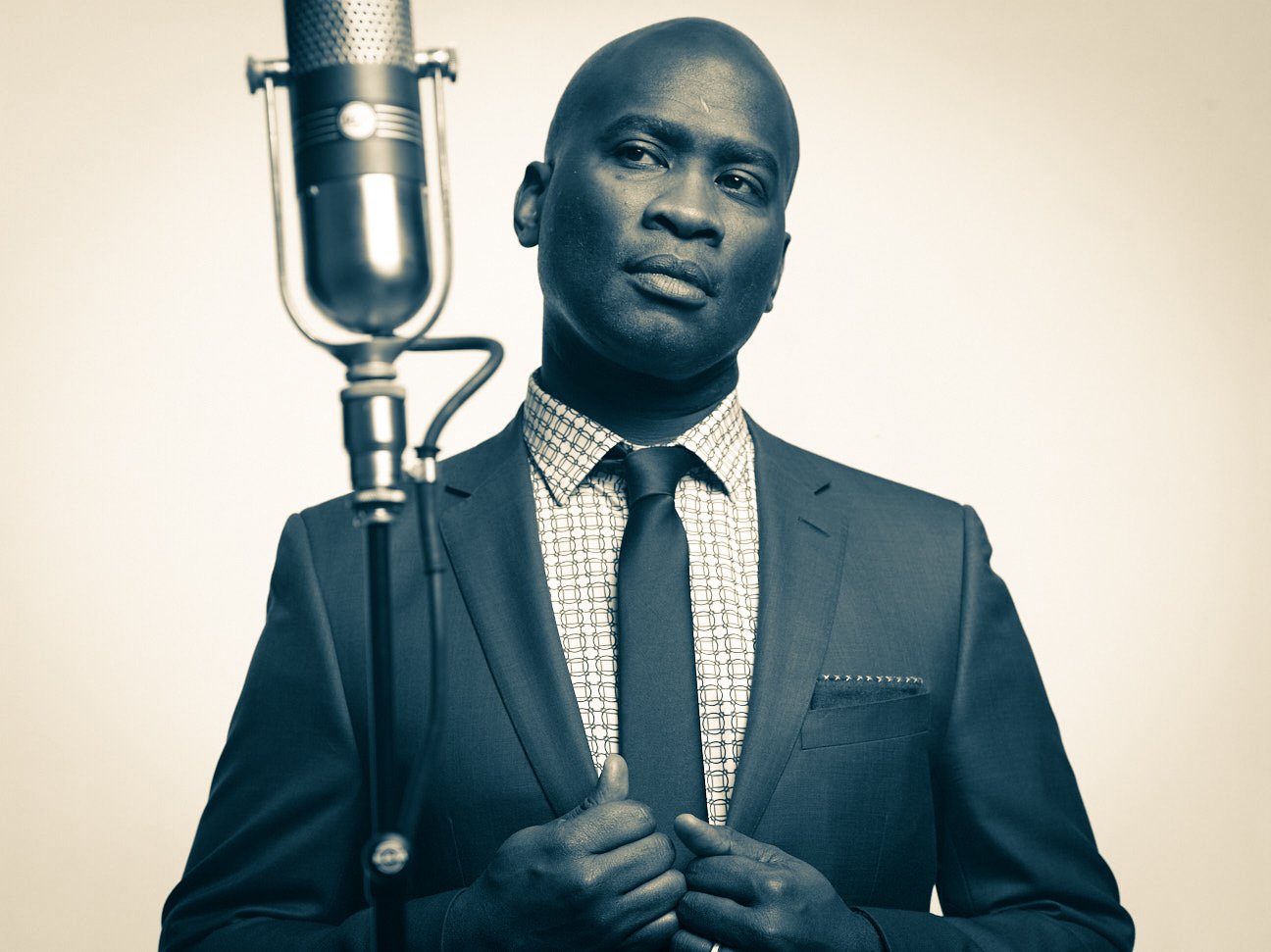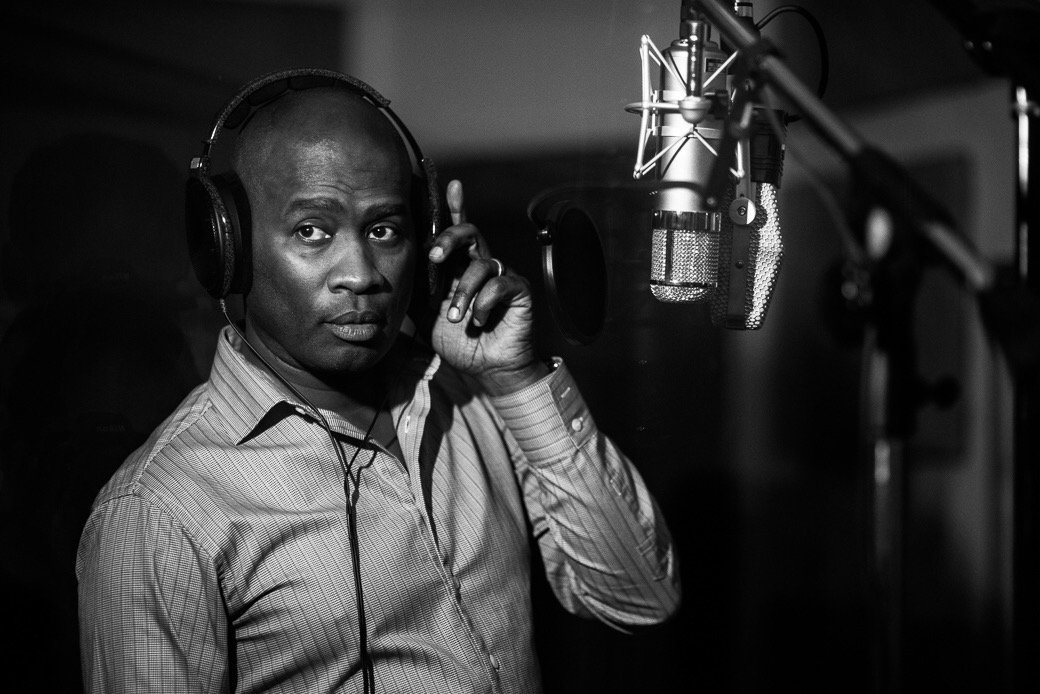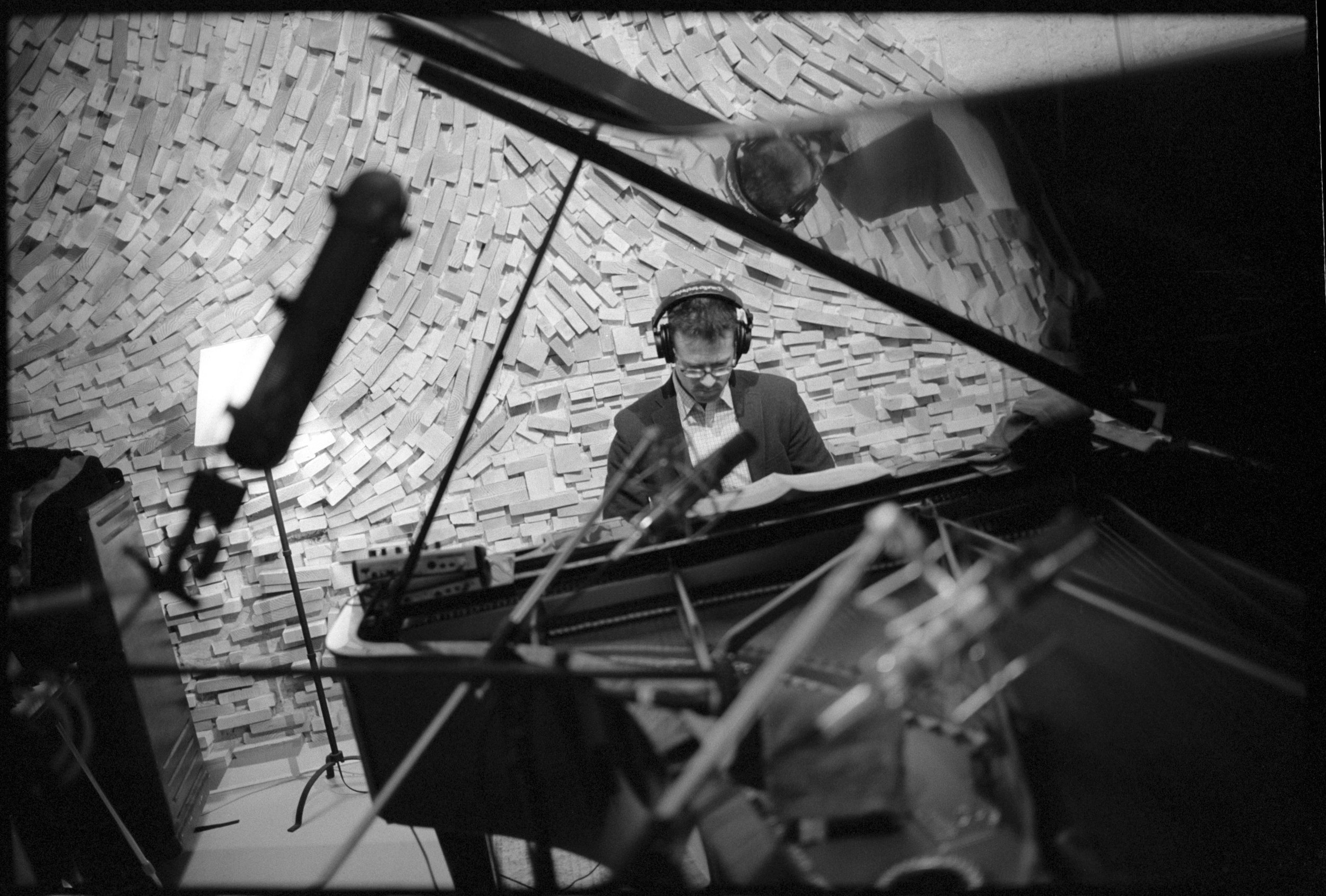
forever reasons
Where to find Forever Reasons :
JOHN DOKES- Vocals DAVID GIBSON- Trombone STEVE EINERSON- Piano ALEX CLAFFY- Acoustic Bass LAWRENCE LEATHERS- DrumsPersonnel:
Recording sESSION photos







Liner Notes:
Spurring dancers to move their feet is second nature to John Dokes, a one-time lindy hop champion who started singing professionally in 2005 with the George Gee Swing Orchestra, which propelled the rollicking 2010 CD John Dokes Sings, George Gee Swings! On this diverse 10-song 2017 followup, Dokes convenes Gee’s musical director, trombonist David Gibson, Gee’s band pianist Steve Einerson, and the crackling bass-drum team of Alex Claffy and Lawrence Leathers, to frame and interact with his mellow, resonant baritone, which he deploys as a coequal instrument, while keeping storytelling and kinetic imperatives firmly in view.
“I’ve sung with George at least four or five times a month since I joined him, which not too many singers have an opportunity to do with a bigger band,” Dokes says. “During my first five or six years, the band was my main focus. I wasn’t stretching or singing publicly with small groups.” But during the last four years, as his relationship with Gibson has strengthened, Dokes has brought combos into prestigious New York boites like Mezzrow, Kitano and Smalls, beta testing ways “to work my voice on new arrangements that aren’t based on historical charts, to approach these songs so it feels more like me, and not my version of how, say, Joe Williams would do it or phrase it.”
When you listen to Forever Reasons, it’s impossible not to be struck by Dokes’ pristine articulation, his fluid phrasing, his refraction of antecedent blues-tinged crooner-swingers like Basieites Joe Williams and Jimmy Rushing, and smooth operators like Nat King Cole, Billy Eckstine and Johnny Mathis. Dokes heard all of them early on via his namesake father, himself a soul and R&B practitioner who sang in Temptations-style groups during the 1970s in the environs of Oakland, California.
As a teenager in the ’80s, Dokes “gravitated toward dancing,” performing in a “relatively popular group in the Bay Area” in which, he says, “I mixed my choreography withreplications of the dancing in the videos of Michael Jackson or Janet Jackson—or whoever—and performed them on stage.” After “abandoning the notion of becoming a well-paid dancer,” Dokes attended Cal State-Northridge as a marketing major, and moved to NewYork in 1993, where he launched what can only be described as a successful business career (on his day gig he serves as Global Chief Marketing Officer for AccuWeather, Inc. and GM AccuWeather Network).“
At some point, I didn’t want to be the old guy in the club, and when you’re swing dancing you’re never the old guy at the club,” Dokes says, explaining his motive for frequenting such Manhattan venues as Louisiana Bar and Grill, the Supper Club, and Swing 46. His charismatic presence soon caught the eye of veteran singer-dancer Dawn Hampton, who became his mentor and muse. She encouraged Dokes to stop confining his singing to the shower, but to develop his voice and songcraft with the same focused attention he had brought to dancing and his “civilian” profession.“
I gravitated toward the type of singing and the type of music that felt natural,” says Dokes. “Once I started singing regularly with George, Dawn often attended my performances. If I did something that wasn’t working, she’d let me know it.”
It’s hard to imagine that Ms. Hampton, who died last October 23rd, could have found fault with Dokes’ impeccable, inspired interpretations, counterstated by Gibson’s fresh, voice-like solo flights. Dokes infuses the popular Joe Williams blue ballad, “A Man Ain’t Supposed To Cry,” with a well-balanced admixture of yearning and precision; displays his marvelous time feel and restrained power while ebulliently declaiming his devotion to the subject on the Williams vehicle “She’s Warm, She’s Willing, She’s Wonderful”; conveys an apropos sense of subtle wonderment on “You Leave Me Breathless,” inspired by Nat Cole’s iconic version on Live At The Sands.
Leathers’ undulating “Poinciana” beat cushions Dokes’ pellucid reading of the title track, a tender lyric thathe wrote to answer the question, “What words can I use to describe how much I love my wife?” Similar sentiments infuse his reading of Jobim’s “Água de Beber,” which proceeds to a percolating bossa funk rhythm. Dokes is conversational and spare on “September In The Rain,” ironic and poignant on “If I Only Had A Brain.” The feel on “This Can’t Be Love” hearkens to the inexorably swinging ambiance that has soundtracked his hundreds of hours dancing, socializing and performing at Swing 46,where “you see people smiling and you start smiling yourself.” The recital concludes with a torchy ballad, “You Don’t Know What Love Is,” on which Dokes, his tone devoid of bathos, wrings every ounce of emotion from the lyric.
“My philosophy of life is to live to my potential, create happiness, and leave a positive legacy,” Dokes sums up. “What this band conveys with our energy and our performance is going to make people happy. I think this CD points me in the direction of what I want my legacy to be.”
-Ted Panken
